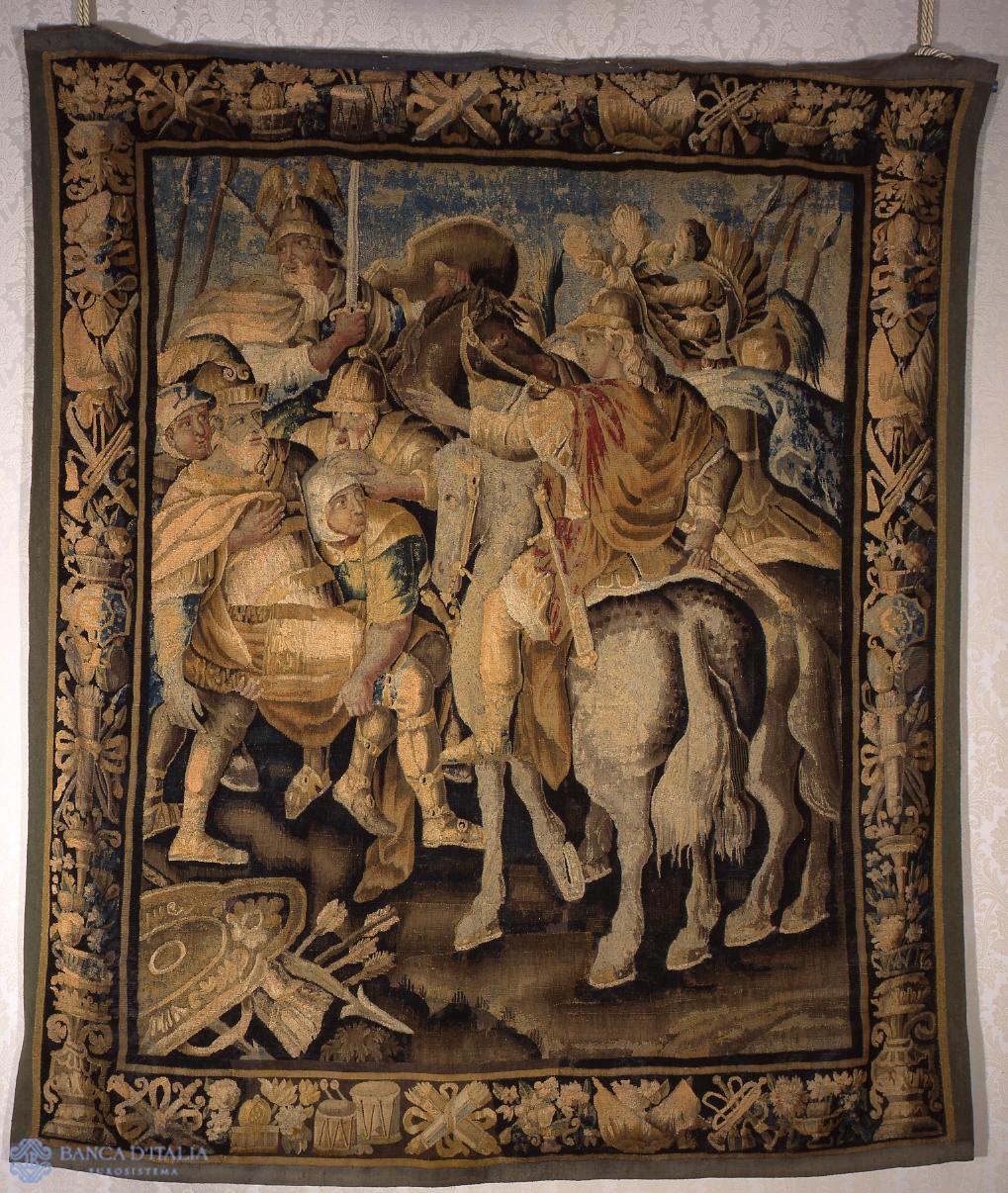After conquering Persia, in the last years of his life Alexander decided to continue his victorious march towards the boundless lands in the East. As narrated by the ancient biographers Quintus Curtius and Plutarch, upon reaching the shores of the Hydaspes River in 326 BC Alexander encountered the troops of the king of the Punjab, Raja Parvatka or Paurava, known in Greek as King Porus.
This tapestry is also based on the series of large decorative panels designed by Charles Le Brun in the second half of the seventeenth century by order of the Sun King. Like the engravings produced by François Chauveu in 1676 and by Gérard Audran in 1678, the scene reproduces Le Brun’s original design but focuses only on a small group of figures that are central to the composition. These include Alexander triumphant astride his famous white stallion Bucephalus and the wounded Indian king, held up by Macedonian soldiers. The complex narrative structure created by Le Brun is thus scaled down to present the events as described by the ancient biographers, including the conversation between the two kings. The military pattern on the border is repeated in all the six tapestries of the series.
Manifattura francese, Re Poro davanti ad Alessandro Magno
King Porus before Alexander the Great
17th century AD
Tapestry
Biblical - Historical - Mythologic

Date
1680 - 1690
Material and technique
Wool and silk
Measurements
270 x 230 cm
Compiler
Alessandro Zuccari
